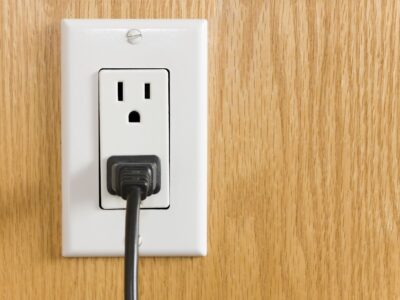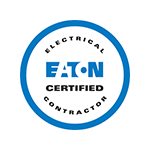When you move into a new home, you might be excited to design your dream interior or adding that deck you have been thinking about for years. Unfortunately, simple changes can dramatically impact your home’s electrical safety, which is why you should be on the lookout for problems. Here are three things every new homeowner needs to know about electrical safety.
Arc Faults Are a Real Threat
Installing shelves and hanging artwork can make your new house feel like a home, but unfortunately, it could also increase your chance of creating dangerous arc faults inside of your walls. Arc faults are areas on wires where the protective insulation has been compromised, allowing heat and electricity to jump outwards and spark a house fire.
Although arc faults may not seem like a common threat, they are the source of more than 40,000 electrical fires every year, which is why you should always use a stud finder to check areas before installing a nail, screw, or anchor. In addition to directing you to areas where studs can support the weight of wall-hung decorations and devices, modern stud finders can also detect electrical current, helping you to avoid arc faults.
Because arc faults are such a common problem, electricians can also install arc fault circuit interrupters, commonly referred to as AFCIs. These devices are designed to monitor your electrical panel for steep surges in electrical use, halting the flow of power before it can spark a fire.
Electrical Needs Can Change
You might love that master suite now, but what if you decide to add a soaker tub or a walk-in closet later? Over time, electrical needs can change, which can make it easy to overload your electrical panel.
When your home was initially built, builders calculated the average daily load to ensure you would have enough power. Unfortunately, adding onto a home or installing appliances could cause you to surpass those original estimates, causing problems like blown fuses, power outages, buzzing panels, and even sparking wires.
If you are thinking about renovating a new home now or installing large appliances that the home didn’t have originally, talk with an electrical contractor to make sure your service is capable of supporting your changes. In addition to keeping your home safe, an upgraded panel can also pave the way for changes down the road.
Extension Cords Are a Last Resort
The first few weeks in your home, you might find yourself arranging and rearranging different rooms, which is why many people rely heavily on extension cords to power things like televisions, stereos, and lamps. Sometimes, extension cords are so convenient that people are tempted to use them permanently, when they are only rated for temporary use.
Because of the highly portable nature of extension cords, they are subject to damage that wiring inside of walls simply isn’t susceptible to. When cords are dropped, stepped on, and kinked, the wiring can develop shorts that can melt protective insulation and start your home on fire.
For these reasons, keep track of your home’s extension cords, and never allow family members to use them on a permanent basis. If you find extension cords in your home, remove them immediately and have an electrical contractor evaluate your wiring needs.
Deciding what your home needs to stay safe and functional isn’t always easy, which is why working with professionals such as the team at Oak Electric is so helpful. In addition to talking with you about your electrical concerns, this experienced crew can help you to upgrade your home by adding components like generators and solar panels. Start making the transition to a more streamlined residence today.






















